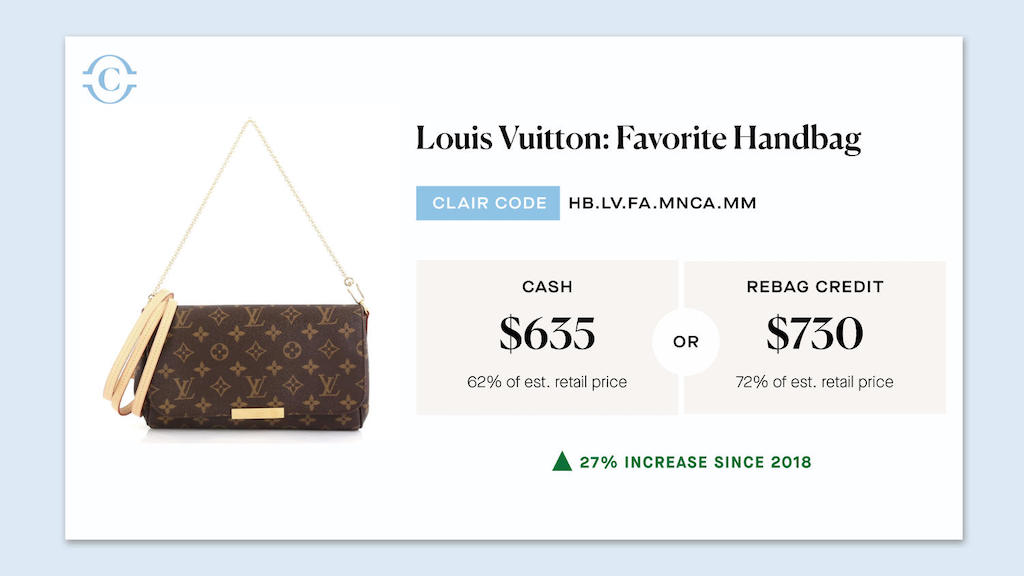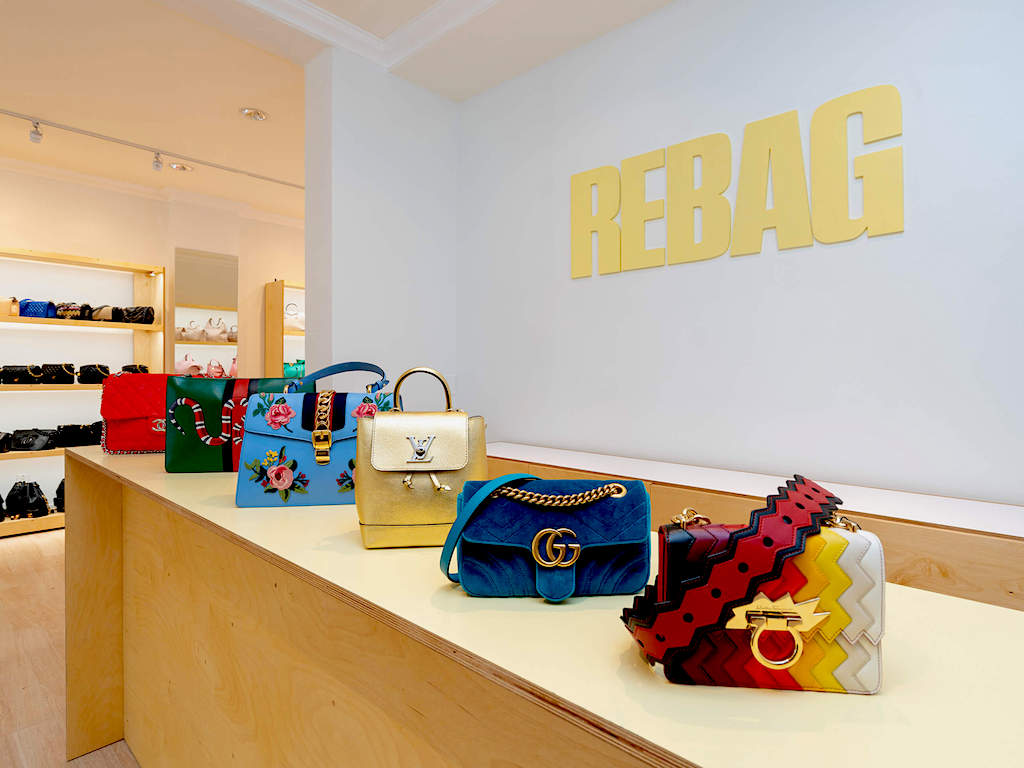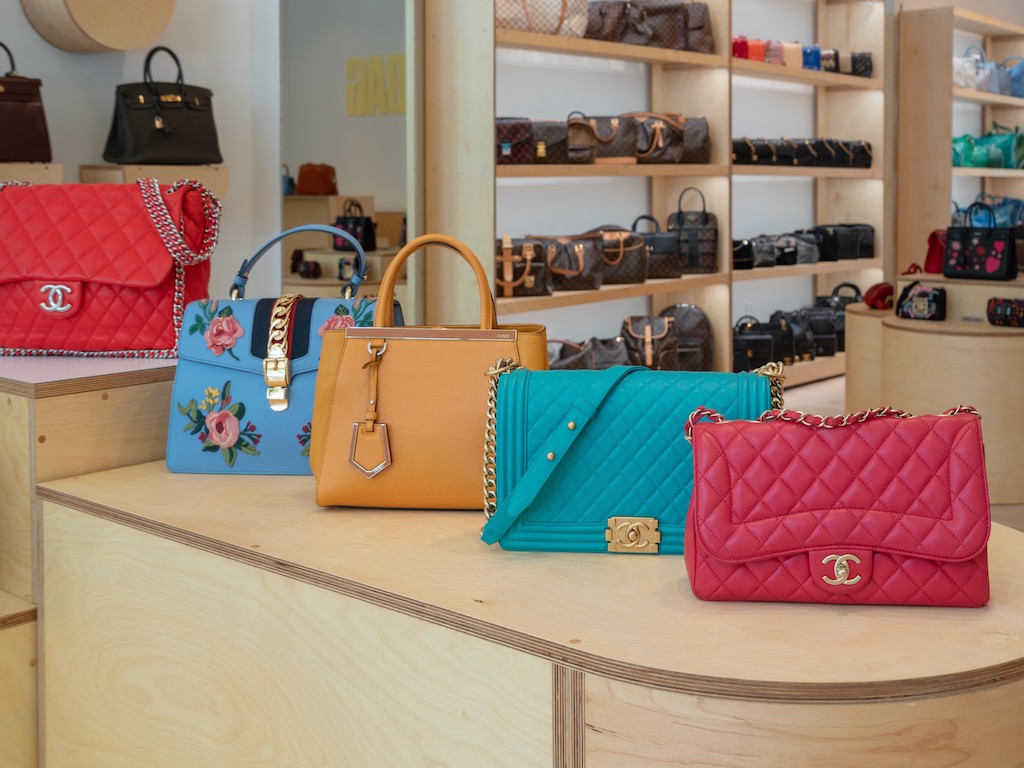3 Mins Read
Luxury handbag resale platform Rebag has just raised US$15 million in its latest Series D round of funding. The new capital will allow the company to further develop its proprietary software to determine resale value of products, as well as scale-up its recently launched resale-rental Infinity Program. The successful round of financing in spite of the current economic recession suggests that investors are optimistic about the future of circular fashion.
The New York-based preloved luxury handbag retailer Rebag has announced that it closed US$15 million in a Series D round of financing led by private equity firm Novator, alongside existing investor General Catalyst, the venture capital firm whose portfolio includes the fitness subscription service ClassPass.
It plans to use the capital to further develop Clair, its software that helps to determine the resale value of preloved luxury handbags and generates an instant offer for sellers on the platform.
Rebag will also use the money to scale development of its Infinity Program, which is a cyclical rental-swap-resale system that allows consumers to trade their initial secondhand purchase in for credit to rent out another style for up to a year.

Last year, Rebag raised US$25 million in a Series C round, and the latest capital injection brings the 6-year-old company’s total funding to US$68 million.
Despite a period of unprecedented economic uncertainty due to Covid-19, it appears that investor appetite for sustainable fashion has remained strong.
“Rebag’s ability to secure funding during these turbulent times speaks to the enormous power of the resale market and the belief that a circular fashion model is the future,” said the company in a statement.
In fact, founder and CEO of Rebag Charles Gorra believes that the coronavirus will further propel the demand and investor interest in circular fashion models as more consumers wake up to the link between ecological destruction and pandemic-scale public health crises.
According to the United Nations, the fashion industry is responsible for 10% of global carbon emissions and 92 million tonnes of annual waste, amounting to a truckload of textiles being landfilled every second.
“We believe the current environment is going to accelerate the transition towards resale. At Rebag we built a brand and a platform that can cater to that growing audience,” said Gorra.
“New opportunities will arise, and we are gearing up to capitalize on the secular trends towards resale ubiquity.”

Rebag currently operates 9 brick-and-mortar storefronts across New York, Los Angeles and Miami. Online sales remain available throughout the pandemic, but physical stores remain closed for the time being until the crisis is over.
Other sustainable secondhand fashion platforms have managed to attract strong investment as well in the midst of the pandemic. Vestiaire Collective, a French resale fashion platform with operations across London, Hong Kong, New York, Milan and Berlin, recently closed a US$64 million funding round to prepare its Asia expansion.
Prior to the pandemic, traditional retailers operating on a conventional linear business model have already been struggling to stay afloat. While the secondhand market takes off, with one report suggesting the sector will reach US$51 billion by 2028 to overtake the mainstream market, multiple high-profile brands including American Apparel and Forever 21 have succumbed to their downfall.
Some mainstream brands hoping to retain customers have shifted their existing strategy by incorporating resale. Most recently, Gap became the latest major brand to dip its feet into the resale trend by partnering with thredUp, and Asian e-commerce giant Zalora now offers customers preloved goods.
It followed a similar initiative from fast fashion giant H&M, who launched a rental, retail and recycle service in its Stockholm flagship store, and a rental programme in China through its high-end sister brand COS.
Want to know the latest in sustainable fashion? Read more fashion news on Green Queen here.
All images courtesy of Rebag.




